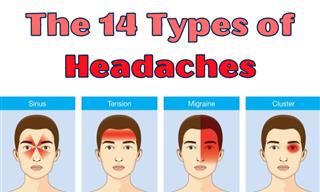It isn’t particularly surprising mental health problems have arisen, as the coronavirus pandemic has instilled a considerable degree of fear and anxiety across populations all over the world. Older adults and people with underlying health conditions, in particular, have been exhibiting symptoms of anxiety and depression. What has made matters worse is that quarantine regulations have forced people to stay indoors for a long time, impacting their usual activities and leading to loneliness and depression.
Furthermore, the fear of not being able to be with your loved one suffering from COVID-19 in the hospital has taken a massive toll on people’s mental health. Not to mention the fact that the pandemic has also caused income loss, social isolation, and the pressure of working from home with kids, leading to more stress.
According to a study that was published last year, “high rates of symptoms of anxiety (6.33% to 50.9%), depression (14.6% to 48.3%), post-traumatic stress disorder (7% to 53.8%), psychological distress (34.43% to 38%), and stress (8.1% to 81.9%), have been reported in the general population during the COVID-19 pandemic in China, Spain, Italy, Iran, the US, Turkey, Nepal, and Denmark”. As we continue to deal with the disease, countries will also need to find a proper way to address the general public's mental health during this pandemic phase.
If you are struggling to cope with the stress of the pandemic, seek an appointment with a mental health care professional. Our article on emotion-focused coping techniques to Handle Excessive Stress During The Pandemic might also be helpful.
2. Neck and Back Pain
As more and more people have been forced to work from home, neck, back and shoulder pain issues have become more regular. This is because people have adopted different workstations while working from home than they were used to in their office environment – like soft couches, beds, and even kitchen counters – where maintaining a good posture for long periods isn’t possible. The poor posture has caused regular stress on the back, shoulder, and neck.
If you have been experiencing repetitive neck and back pain issues after you started working from home, then try doing some stretching and shoulder shrugs in between breaks. If the pain refuses to go away, then consider getting physical therapy. Also, try and change your workstation and invest in a good set of chairs and desks. That should ease the pressure on your neck and back.
3. Diabetes
With people staying largely indoors during the pandemic phase, maintaining a healthy lifestyle has become difficult. Moreover, there has also been a lot of unhealthy eating and increased alcohol use as people have used food and alcohol to help deal with the stressful situations in this pandemic. This has led to weight gain in several people and many of those have been diagnosed with diabetes.
Being overweight or obese increases a person's risk of developing type 2 diabetes. Furthermore, according to the MayoClinic, “too much alcohol may cause chronic inflammation of the pancreas which can impair its ability to secrete insulin and potentially lead to diabetes”. What has made matters worse are missed physicals, which has put people at a higher risk of being unable to detect the disease in time.
So, first of all, try and make sure you maintain a healthy lifestyle during this phase, which means regular exercise and healthy eating. Also, don’t forget to go for your health checkup as soon as you can.
4. High Blood Pressure
According to doctors, cases of high blood pressure have also been on the rise ever since the pandemic began. For many, this has happened because they haven’t been able to see their doctor regularly and get their primary care. However, for many others, high blood pressure is being found because of an unhealthy diet and lack of exercise as they struggle to adapt to a work-from-home lifestyle.
Stress, of course, has also played a role in this as social isolation and constant news of death and disease can take a toll on people’s blood pressure. Our body produces a surge of hormones when we are in a stressful situation. According to the MayoClinic, “these hormones temporarily increase your blood pressure by causing your heart to beat faster and your blood vessels to narrow”.
5. Dental Problems
One of the lesser-discussed consequences of the COVID-19 pandemic has been its impact on people’s oral health. Earlier this year, the FDI World Dental Federation (FDI) declared that one year into the pandemic, they are witnessing the effect of the virus on the health of people’s teeth and gums around the globe. “Let’s call it for what it is—a dental disaster,” said Dr. Gerhard Konrad Seeberger, president of FDI World Dental Federation.
During the first wave of the COVID-19 outbreak, dental practices were among the most affected essential health services as they were forced to close. The World Health Organization reported that 77 percent of countries reported partial or complete disruption of their oral health services. This resulted in people missing their dentist appointments for more than a year and many went on to develop advanced tooth decay, gum infections, and related complications. What hasn’t helped, according to dentists, is that people have been skipping twice-daily toothbrushing and have also been snacking between meals at home.
This is why you must give importance to your annual dentist appointments and teeth cleanings again.
6. Hair Loss
Physicians and dermatologists have found a rise in hair loss cases, particularly in women, over the last year. Experts say that the stress of the pandemic and quarantine regulations has worsened the psychological state of many people, leading to severe hair shedding. This condition, called telogen effluvium, is a common form of hair loss caused by emotional or physical trauma, nutritional deficiencies, pregnancy, or surgery.
While an average person loses about 50 to 100 hairs per day, someone experiencing telogen effluvium might lose about 300 hairs per day. If the condition becomes uncontrollable, it can cause considerable hair thinning. The Henry Ford Health System says that those whose lives have been severely disrupted in some way or the other by the coronavirus might have been experiencing telogen effluvium.
Though scary, this type of hair loss is temporary, and usually goes away on its own in three to six months. But if you are worried, an appointment with your dermatologist would be a good idea.
7. Mask-Induced Acne

Mask-induced acne, also dubbed as ‘maskne’, has been a common issue found among people across all age groups during the pandemic. You might have dealt with acne in your teenage years, but maskne is different.
Masks are, of course, essential for COVID-19 prevention. However, when you wear a mask all day, your lower face, chin, and lips are soaked with moisture and bacteria. This can cause your skin pores to be blocked and oil and dead skin cells to be trapped on the skin’s surface. Over some time, an ideal environment for acne breakouts or dermatitis can then be developed. Furthermore, your skin may become inflamed from the fibers of the mask after continuous use.
Health care and frontline workers have been dealing with maskne and other skin-related issues since the coronavirus pandemic began. Others who have to wear masks all day long have also been facing similar problems. Hence, it’s important that you keep your skin clean and well-hydrated always. Dermatologists recommend washing your face before putting on your mask and cleaning your face several times a day with a gentle cleanser. Antibacterial cleansing pads might be helpful too in preventing oil buildup on the skin surface. Also, make sure that you wash your mask with antibacterial soap and dry it completely before using it again.
Share this information with your loved ones!
 Go to BabaMail
Go to BabaMail































